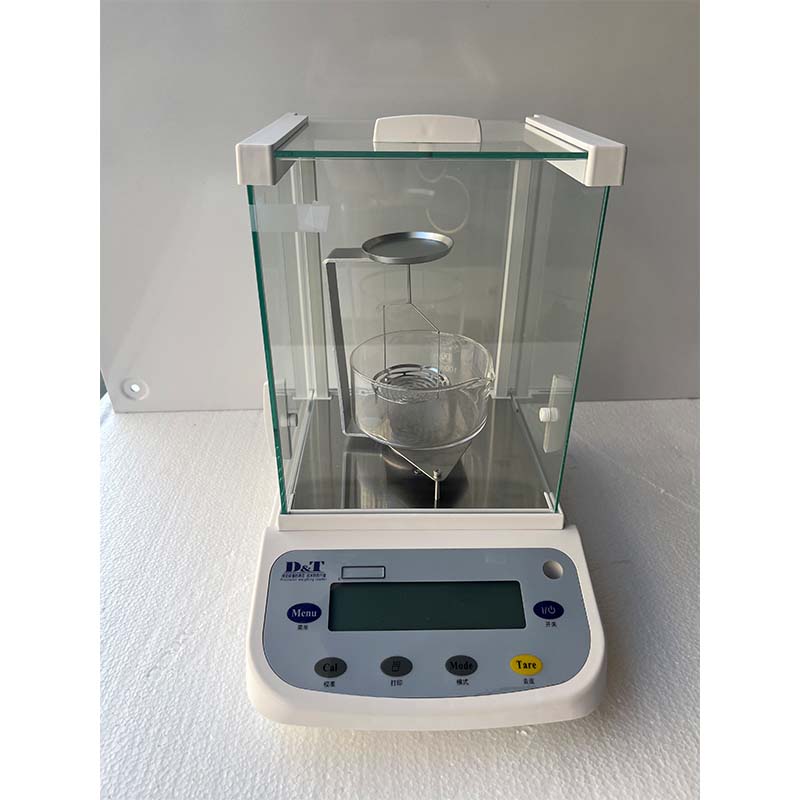custom electronic tensile tester
Custom Electronic Tensile Tester Enhancing Material Testing Precision
In the ever-evolving field of material science and engineering, the need for precise and reliable testing equipment has surged. Among these essential tools, the custom electronic tensile tester has emerged as a cornerstone in evaluating material properties. Combining advanced technology with bespoke design, these testers are tailored to meet specific testing requirements of various industries, including construction, textiles, and manufacturing.
What is a Custom Electronic Tensile Tester?
A tensile tester is a mechanical device used to measure the tensile strength, elongation, and other mechanical properties of materials. The custom electronic tensile tester is an advanced version that incorporates electronic components for improved accuracy and functionality. Unlike standard testers, custom models can be tailored to accommodate unique sample sizes, testing speeds, and load capacities. This customization makes it an invaluable asset for laboratories and manufacturers looking to perform specialized testing procedures.
Key Features of Custom Electronic Tensile Testers
1. Precision Measurement Custom electronic tensile testers are equipped with high-resolution load cells and advanced sensors that ensure precise measurement of applied forces. This level of accuracy is critical in determining material behavior under stress.
2. Data Acquisition and Analysis With integrated software, these testers can automatically collect and analyze data in real-time. Users can easily visualize stress-strain curves, calculate material properties, and generate comprehensive reports, streamlining the testing process.
3. User-Friendly Interface Modern tensile testers are designed with user-friendly interfaces, often featuring touch screens, intuitive menus, and customizable settings. This accessibility allows operators to quickly adapt the machine to suit various testing protocols.
4. Versatility Custom electronic tensile testers can be designed to test a wide range of materials, including plastics, metals, composites, and textiles. This versatility is particularly beneficial for industries that require multifaceted material testing.
5. Enhanced Safety Features Safety is paramount in material testing environments. Custom electronic tensile testers often come with built-in safety features such as overload protection, automatic shutdown systems, and emergency stop buttons, ensuring a secure testing process.
custom electronic tensile tester

6. Customization Options The ability to customize a tensile tester extends beyond load capacities and material compatibility. Manufacturers can modify dimensions, test speed ranges, and include additional features like environmental chambers for testing materials under extreme conditions.
Applications of Custom Electronic Tensile Testers
The applications of custom electronic tensile testers are diverse and span multiple sectors. In the construction industry, for example, these testers are essential for evaluating the performance of concrete, steel, and other structural materials to ensure safety and compliance with regulatory standards.
In the textile industry, tensile testers play a crucial role in determining the strength and elasticity of fabrics. Manufacturers use this data to improve product quality and inform design choices. Additionally, the automotive and aerospace industries rely on tensile testing to assess the performance of components under various stress loads, ultimately influencing safety and durability.
Benefits of Investing in a Custom Electronic Tensile Tester
Investing in a custom electronic tensile tester offers numerous advantages. Firstly, it enhances the quality control process by providing accurate and reliable data, which leads to better product development and reduced material waste. Secondly, having a specialized tester reduces downtime since it can be tailored to specific testing needs, leading to faster turnaround times for test results.
Furthermore, the versatility of custom electronic tensile testers means that they can adapt to changing project requirements, saving companies from the financial burden of acquiring multiple testing machines for different applications.
Conclusion
In the dynamic landscape of material testing, the custom electronic tensile tester stands out as a vital solution for companies seeking precision and versatility. By investing in a tailored tensile testing machine, organizations can advance their research, enhance product quality, and ensure compliance with industry standards. As technology continues to evolve, these testers will undoubtedly play a significant role in pushing the boundaries of material science and engineering, paving the way for innovations that rely on the reliability of materials.
-
Why the Conductor Resistance Constant Temperature Measurement Machine Redefines Precision
NewsJun.20,2025
-
Reliable Testing Starts Here: Why the High Insulation Resistance Measuring Instrument Is a Must-Have
NewsJun.20,2025
-
Flexible Cable Flexing Test Equipment: The Precision Standard for Cable Durability and Performance Testing
NewsJun.20,2025
-
Digital Measurement Projector: Precision Visualization for Modern Manufacturing
NewsJun.20,2025
-
Computer Control Electronic Tensile Tester: Precision and Power for the Modern Metal Industry
NewsJun.20,2025
-
Cable Spark Tester: Your Ultimate Insulation Assurance for Wire and Cable Testing
NewsJun.20,2025
 Copyright © 2025 Hebei Fangyuan Instrument & Equipment Co.,Ltd. All Rights Reserved. Sitemap | Privacy Policy
Copyright © 2025 Hebei Fangyuan Instrument & Equipment Co.,Ltd. All Rights Reserved. Sitemap | Privacy Policy
